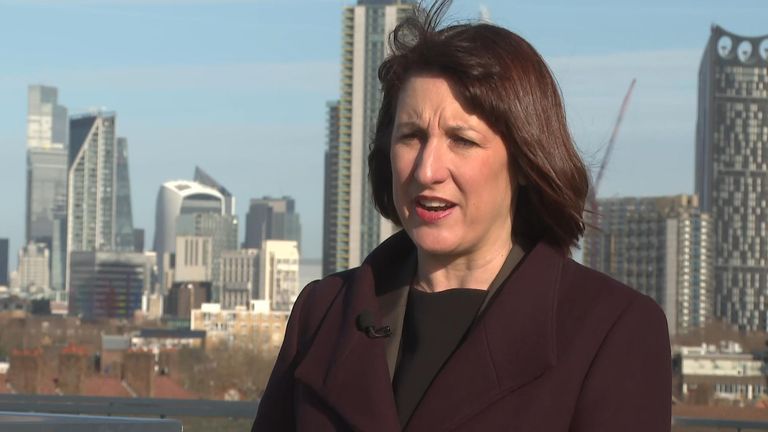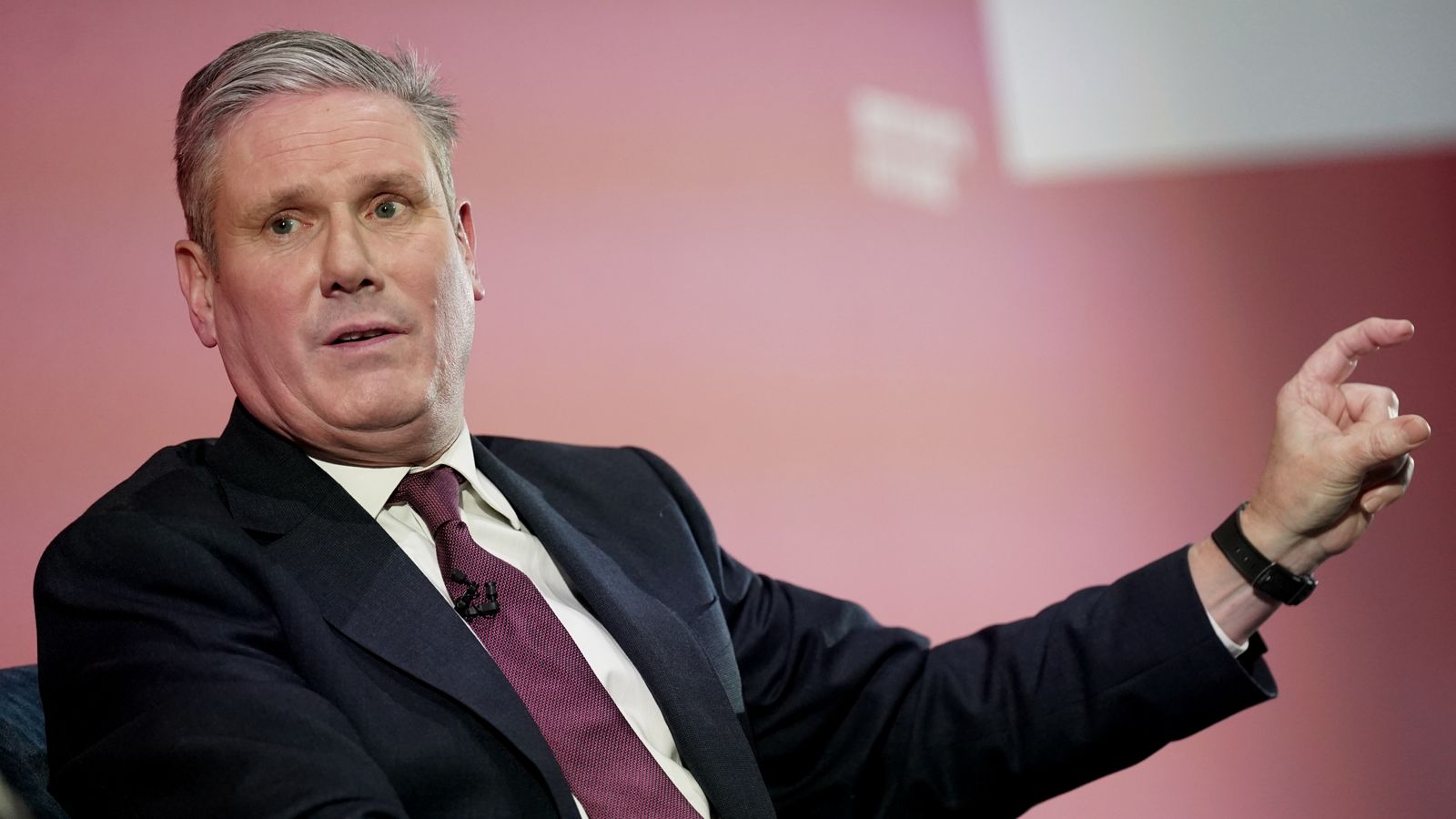
Labour will announce on Thursday that it is scaling back its flagship green prosperity plan, Sky News understands.
The policy will not be dropped altogether, but the party is ditching the financial target to spend £28bn a year on environmental schemes.
Politics Live: PM ends ‘disaster’ of a day with invitation to Brianna Ghey’s family
Labour will put this down to uncertain public finances and is also likely to say that this is the outcome of finalising ideas for their manifesto for the next general election, expected later this year.
The major U-turn comes after weeks of confusion surrounding the policy.
Last week, shadow chancellor Rachel Reeves refused to commit to the spending target 10 times when asked by Sky News’ political editor Beth Rigby if the pledge remained in place.
However earlier on Wednesday, Sir Chris Bryant, a shadow digital minister, told Sky News that “we are doing it” – adding that “it will be £28bn”.
And the day before, party leader Sir Keir Starmer also insisted he was not scaling back on the pledge, telling Times Radio: “We want to have clean power by 2030… that’s where the £28bn comes in.
“That investment is desperately needed for that mission and I’ve been unwavering in relation to mission clean power by 2030.”
The muddled briefings have led to speculation of a split between Sir Keir and Ms Reeves.
The pledge to spend £28bn a year on environmental projects, like offshore wind farms and electric vehicles, was first made in 2021 as part of a promise that Labour would be the greenest government in history were it to win the keys to Number 10.
But it was watered down last year to be a target to work towards, rather than a day-one commitment, with Ms Reeves blaming rising interest rates and the “damage” the Conservatives had done to the economy for the change in direction.
The costly pledge has long been used by the Tories to criticise Labour’s fiscal responsibility, following Prime Minister Rishi Sunak’s decision to scrap a number of the government’s own green pledges.
Labour is said to be divided on the matter, with some shadow ministers arguing the policy plays into Conservative attacks on its economic credibility, and others fearing ditching it will accentuate the feeling that Sir Keir has rowed back on the majority of his key pledges.
Since becoming Labour leader, Sir Keir has U-turned on policies including ditching university tuition fees, nationalising public utilities, increasing income tax for the top 5% of earners and abolishing Universal Credit.
A spokesperson for Momentum, the left-wing pressure group, said: “This latest Starmer U-turn represents yet another capitulation to right-wing interests.
“In doing so, Starmer isn’t just breaking another promise – he is defying the consensus among Labour members unions, voters and economists for a major green investment boost to tackle the climate crisis and create jobs in every corner of the country.”
The Tories also attacked the change in direction, with Chief Secretary to the Treasury, Laura Trott, saying it creates “uncertainty for business and our economy”.
“On the day that Labour are finalising their manifesto, Keir Starmer is torpedoing what he has claimed to be his central economic policy purely for short-term campaigning reasons,” Ms Trott said.
Carla Denyer, co-leader of the Green Party, said: “Labour have chosen to wear their fiscal rules as a millstone around their neck.
“A different approach through tax reforms, in particular by introducing a wealth tax on the super-rich, could help pay for the green transition.
“There is more than enough money in the economy to pay for this. Indeed, the Green Party would go further and faster, investing at least double what Labour originally pledged, so we can turbo charge the transition to a green economy.”







